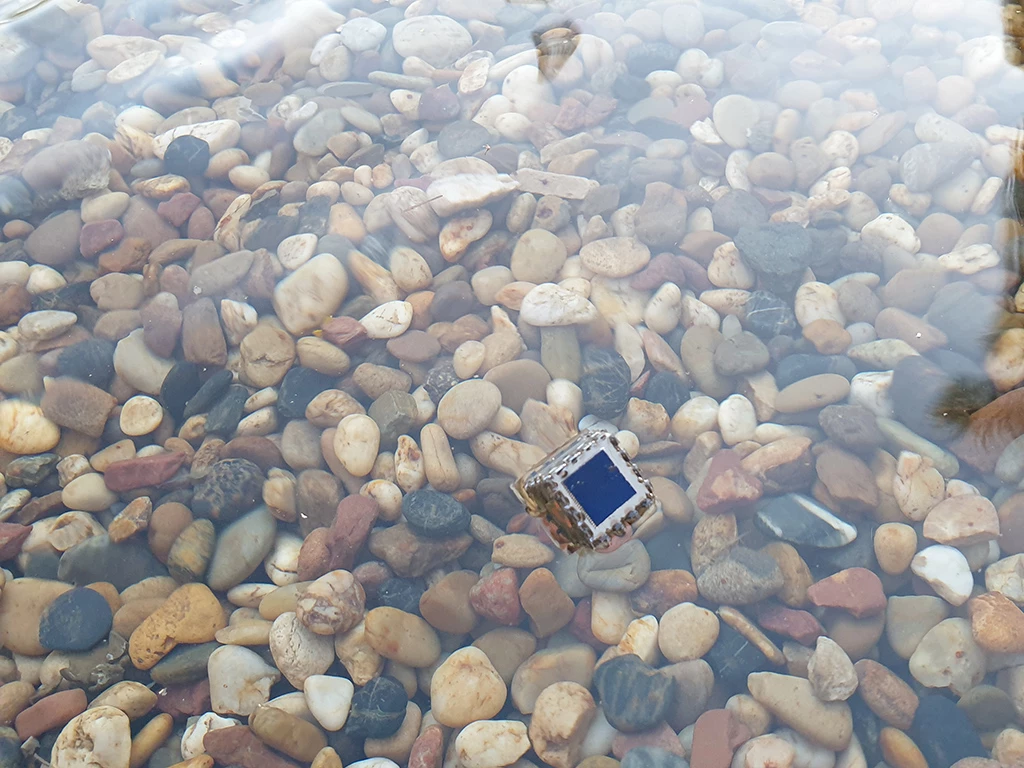It's vitally important to monitor the water quality of fish farms, as problems such as pollution can quickly prove disastrous. A small new floating cube was designed with this in mind, as it continuously tracks multiple factors.
As things currently stand, fish farm operators usually utilize multiple water sensors. Each one measures something different – such as oxygen content or acidity – and has to be checked manually. While there are systems that combine multiple sensors in one device, they tend to be big and expensive.
In an attempt to address these limitations, scientists at Saudi Arabia's King Abdullah University of Science and Technology (KAUST) created the floating device. Instead of trying to cram all of its functions onto one chip, they utilized multiple chips that are joined together along the edges, forming a cube.

The gadget is weighted so that its integrated solar panel is always facing upwards, providing power to the onboard battery. Its bottom-facing side contains sensors that measure pH, temperature, salinity and ammonia levels, while its other sides incorporate air pollution sensors, along with an antenna – the latter is used to transmit data via Bluetooth to a nearby smartphone, which will instantly alert its user if anything is out of whack.
Among other things, the KAUST team is now developing a cooling system for the device, to keep it from overheating while lying in direct sunlight. The sensor cube technology could conceivably also be put to other uses, such as the monitoring of oil within pipelines.
A paper on the research, which is being led by electrical engineer Muhammad Hussain, was recently published in the journal Small.
Source: KAUST




